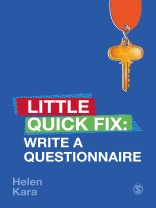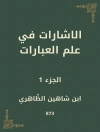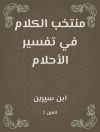After interviews, the most common data collection instrument undergraduates turn to is a short survey. This requires them to write a questionnaire. Sounds easy – it’s not!
This LQF teaches the art of open and closed questions, how to prompt higher response rates, when and how to use basic Likert scales, and everything else you need to know to get the most out of your questionnaire. A good questionnaire makes all the difference to getting data you can work with and poor research skill here lowers grades.
İçerik tablosu
1. How do I know I should use questionnaires in my research project?
2. What are the practicalities of using questionnaires?
3. What kinds of questions should I use?
4. How do I find people to fill in my questionnaires?
5. Why do I need to test my questionnaire?
6. How can I improve my response rate?
7. What do I do when I have all my completed questionnaires?
Yazar hakkında
Helen Kara is a leading independent researcher, author, teacher and speaker specialising in research methods, particularly creative methods, and research ethics. With over twenty years’ experience as an independent researcher Helen now teaches doctoral students and staff at higher education institutions worldwide. She is a prolific academic author with over 25 titles; notably Creative Research Methods: A Practical Guide and Research and Evaluation for Busy Students and Practitioners, both in their second editions. Besides her regular blogs and videos, she also writes comics and fiction. Helen is an Honorary Senior Research Fellow at the University of Manchester, and a Fellow of the Academy of Social Sciences. In 2021, at the age of 56, she was diagnosed autistic. Her neurodiversity explains her lifelong fascination with, and ability to focus on, words, language and writing.












